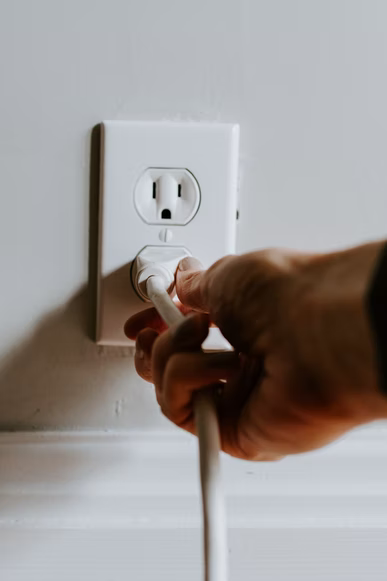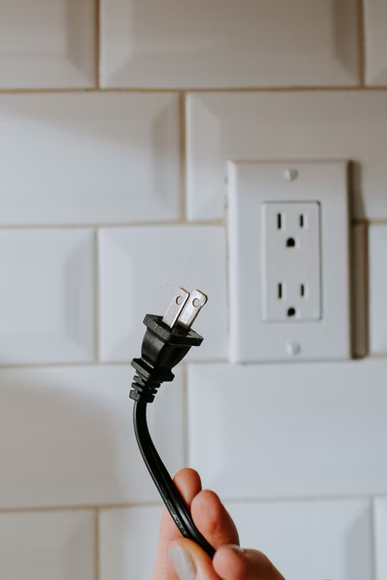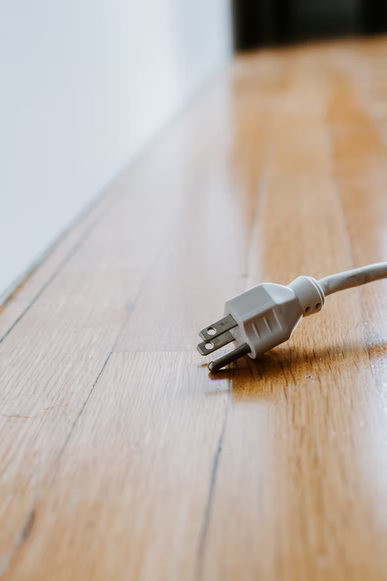Extension cords are lifesavers when you need to plug in many devices simultaneously, but they can also be dangerous if misused. You may want to consider some dos and don’ts for using extension cords safely.
Dos:
Use The Right Cord For Your Needs
There are three extension cords: standard, heavy-duty, and light-duty. Standard cords are fine for most uses, but if you’re using a lot of power-hungry devices or if you’re going to be moving the cable around a lot, you’ll need a heavy-duty cord. Light-duty cords should only be used for low-power devices.
When choosing an extension cord, you need to consider the wattage of the device you’re plugging in and the length of the cable. The higher the wattage of the device, the thicker the gauge of wire needed in the cord.
For example, if you’re using a 1500-watt heater, you’ll need a 12-gauge extension cord. If you’re using a 100-watt light bulb, you can use a 16-gauge extension cord.
Use An Extension Cord That’s Long Enough
A long extension cord is an essential investment for any homeowner. It can be a lifesaver when you need to plug in a large appliance or machinery. Here are a few reasons why using a long extension cord is so important:
- You can avoid tripping over cords stretched across the room using a long extension cord. This will also keep your lines from getting damaged.
- A long extension cord with switch gives you more flexibility when plugging in appliances. You won’t have to unplug other machines to use the one you need.
- It’s helpful when you need to plug in something in a different room. This will save you from carrying an appliance or machinery across the house.
- A long extension cord can be used with multiple appliances simultaneously. This is a great way to save time and energy.
- A long extension cord is a must-have for any home office. You can use it to power up your computer, printer, and other electronics.
Use a Grounded Cord
The use of a grounded extension cord is essential to prevent electrical shock. An adequately grounded extension cord will have three prongs on the plug. The third prong, also known as the grounding pin, is designed to contact the ground wire in the outlet.
This creates a closed circuit and allows electricity to flow safely through the cord. If there is a problem with the appliance or wiring, the ground pin will allow electricity to flow safely to the ground instead of through you.

Ensure The Cord Is In Excellent Condition
It’s vital to ensure that your extension cord is in excellent condition. This is because an extension cord that’s not in good shape can pose a fire hazard. In addition, using an extension cord that is not in good condition can also cause damage to your electrical equipment.
Use Extension Cords for Their Intended Purposes
For instance, there are indoor and outdoor extension cords. Each of them is designed to adapt to the indoor and outdoor areas specifically, and nothing contrary to this.
Don’ts
Use It As a Permanent Wiring Solution
Although using an extension cord as a permanent wiring solution may be tempting, it is essential to remember that this is not safe. Extension cords are not in any way intended for long-term use, and using them in this way can lead to several dangerous risks, including fire outbreaks.

Run Extension Cords Under Rugs
It’s best to avoid running an extension cord under a rug if possible. If you must do so, ensure that the cable is long enough to extend from under the carpet, and try not to overload the outlet with too many appliances. If there is any visible damage to the cord, discontinue use immediately and replace the cord.
Leave An Extension Cord Lying In Water
If an extension cord is lying in the water, it can cause a short circuit, leading to a fire. Additionally, if an extension cord is lying in the water, it can become wet and heavy, leading to the line becoming tangled or pulled out of the wall outlet.
It’s crucial always to store extension cords in a dry place when they are not in use.

Coil It Too Tight
Coiling an extension cord too tight can be dangerous. When you twist an extension cord, make sure you do not wrap it too tightly, as this can damage the wires inside and cause a fire.
Additionally, coiling an extension cord too tightly can make it challenging to use when you need it, so make sure to twist it loosely instead.
Expose It To Pets
Exposing an extension cord to pets can be dangerous, as they may chew on the cord, potentially causing electrical shocks. Pets may also be injured if they step on a loose extension cord. It’s important to keep cords out of pets’ reach and use surge protectors when necessary. If an extension cord does become damaged, it should be replaced immediately.

Conclusion
Extension cords are pretty effective when we use them accordingly. Following all the dos and don’ts listed above not only assures you of safety but the durability of your extension cords. Always carry out care and maintenance practices such as safe storage and cleaning them often. This enhances durability and effectiveness on their end.




